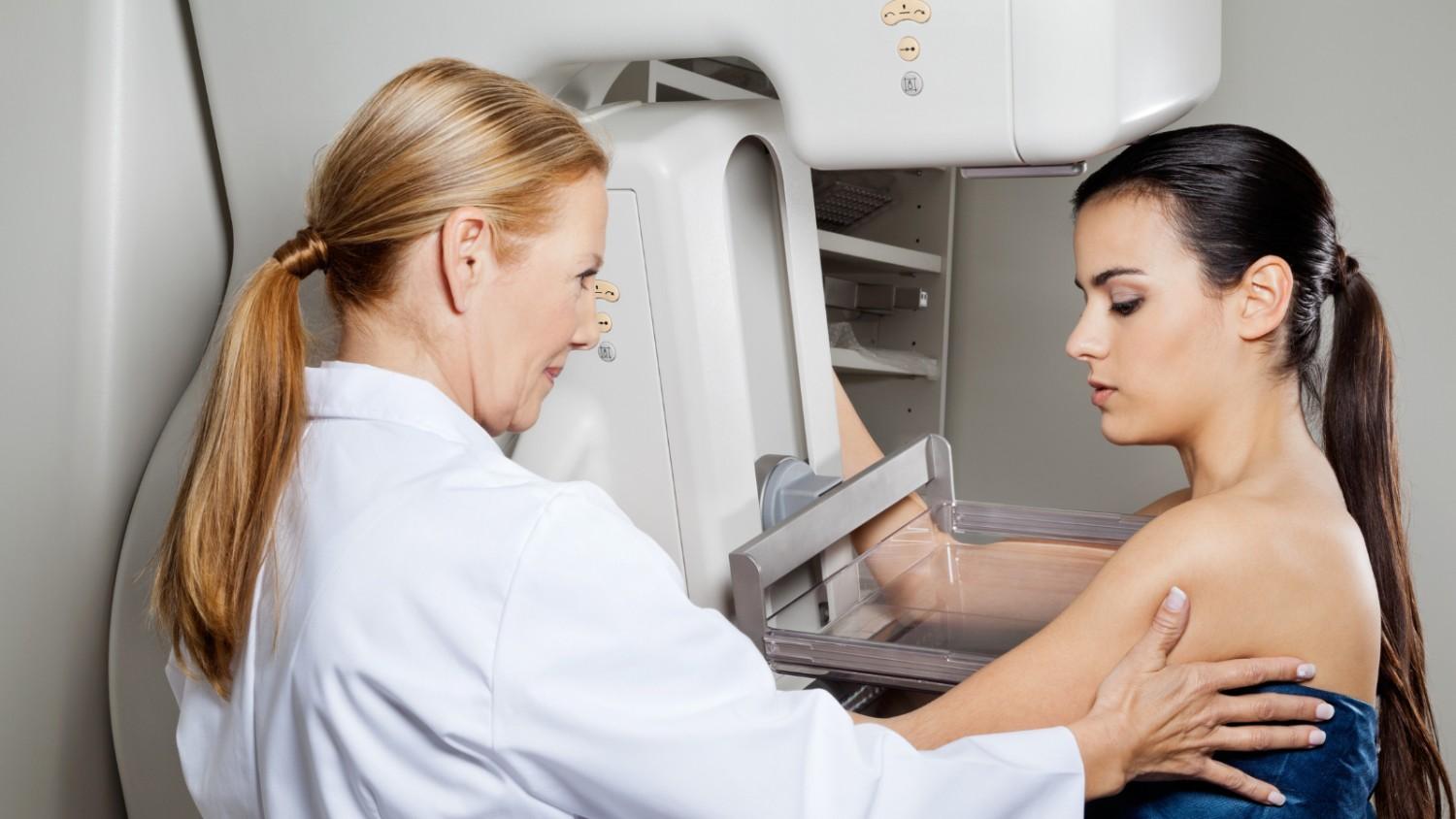Many women aren’t sure when to begin breast cancer screening, or if they even need it yet. Delaying it too long or starting too early can lead to stress, confusion, or missed signs. That’s why having the right guidance matters. An experienced OBGYN can help you make informed decisions based on your age, health, and family history. In this blog, we’ll break down risk factors, screening types, what to expect, and when it’s time to have that first conversation with your doctor.
Why Early Detection Matters
Breast cancer doesn’t always show obvious symptoms in its early stages. That’s why routine screening is so important; it can catch signs of cancer before you feel a lump or notice changes. It’s common to put off screenings when you feel well or think it’s too early to start. But having regular checkups helps ensure that, if anything does develop, it’s found and treated early, when it’s most manageable
OBGYN specialists play a vital role in your breast health. They’re often the first to notice unusual changes, recommend screenings, and refer you to the right specialists. Prioritizing early detection with your doctor’s support can make a significant difference in your outcome and overall well-being.
Here’s why it matters:
- Higher survival rates: Breast cancer that’s detected in its early stages is usually smaller, localized, and more responsive to treatment. This means there’s a much higher chance of complete recovery. Studies consistently show that early-stage breast cancer has significantly better five-year survival rates than cancer found later.
- Less aggressive treatment: Early detection often means the cancer hasn’t spread to other parts of the body, so that treatment plans can be simpler. Many patients can avoid harsh therapies like chemotherapy and instead undergo targeted treatments or minor surgery. This not only shortens recovery time but also reduces the physical and emotional toll of treatment.
- Lower healthcare costs: Treating breast cancer at an advanced stage often involves more complex care, longer hospital stays, multiple procedures, and extended medication use. Detecting cancer early can minimize these expenses and reduce the need for ongoing care, making it less burdensome financially for patients and their families.
- Greater peace of mind: Knowing that you’re getting regular screenings reassures you. Even if something is found, catching it early puts you in a much stronger position to manage it. Being proactive with your OBGYN and following their recommendations helps you feel informed and empowered about your health.
- Improved quality of life: When breast cancer is treated early, there’s often less disruption to your daily routine, work, and relationships. Early-stage patients tend to recover faster, experience fewer complications, and return to their normal activities with fewer limitations. It allows you to focus more on living well rather than managing illness.
Understanding Your Risk Factors
Not everyone shares the same risk when it comes to breast cancer. Genetics, lifestyle, and personal health history can all play a role. Knowing what increases your risk can help you and your OB-GYN make informed decisions about when to begin screening. This section breaks down the most important risk factors so you can better understand your personal health needs.
1. Family History of Breast Cancer
If a close relative, like a parent, sibling, or child, has had breast cancer, your risk is higher. The more family members affected, especially at a younger age, the more important it becomes to start screening earlier.
2. Genetic Mutations (BRCA1 or BRCA2)
Inherited changes in certain genes, such as BRCA1 and BRCA2, greatly raise your risk. If you carry one of these mutations, your provider may recommend more frequent or advanced screening methods.
3. Age
The risk of developing breast cancer increases as you get older. While younger women can still be affected, most cases occur in women over 50.
4. Personal History of Breast Conditions
If you’ve had breast cancer before or non-cancerous breast conditions like atypical hyperplasia, your future risk may be higher. This history often means earlier or more frequent screenings are needed.
5. Hormone Exposure
Starting your period early, entering menopause late, or using hormone replacement therapy for extended periods may increase your risk due to prolonged estrogen exposure.
6. Lifestyle Factors
Smoking, heavy alcohol use, lack of physical activity, and a high-fat diet can all contribute to increased risk. Small changes in daily habits may reduce your overall risk.
7. Dense Breast Tissue
Having dense breasts not only raises the risk of breast cancer but also makes it harder to detect on a standard mammogram. Your OB-GYN may suggest supplemental imaging for clearer results.
Recommended Screening Guidelines by Age
Knowing when to begin routine breast cancer screenings can feel confusing, especially with different guidelines depending on age and personal circumstances. Instead of a one-size-fits-all approach, screening decisions should be based on how your risk changes over time. Let’s look at how age plays a role in determining when to begin and how often to screen.
In Your 20s and 30s
During this stage, breast cancer screenings usually involve clinical breast exams performed during routine OB-GYN visits. Mammograms aren’t typically needed unless you’re at higher risk. Still, this is the time to become familiar with how your breasts normally look and feel; self-awareness can help you notice subtle changes. If you have a strong family history of breast or ovarian cancer, it’s a good idea to talk to your provider about whether early imaging or genetic testing may be appropriate.
Age 40 to 44
Women of average risk can consider starting yearly mammograms during this window, though it’s not mandatory. This age range is ideal for discussing your personal and family history with your OB-GYN to determine whether earlier screening is beneficial. Together, you can decide when and how to begin regular imaging based on your comfort level and risk profile.
Age 45 to 54
At this point, annual mammograms are generally recommended. The risk of breast cancer begins to rise significantly in this age group, so regular screenings are key to catching abnormalities early. Early detection during this stage can lead to more treatment options and better outcomes.
Age 55 and Older
Women in this category can continue mammograms yearly or switch to every two years, depending on their overall health and personal preference. If you’re in good health and have a life expectancy of at least 10 more years, ongoing screening remains important and is encouraged by most health organizations.
For High-Risk Individuals (at any age)
If you carry a BRCA gene mutation, have a close family history of breast or ovarian cancer, or have other known risk factors, you may need to start screenings earlier, often by age 30. Your OB-GYN may recommend a combination of mammograms and MRIs to ensure thorough monitoring.
Types of Breast Cancer Screenings
Mammography is the most common and effective way to detect breast cancer in its early stages. It uses low-dose X-rays to capture images of breast tissue. 3D mammograms are becoming more common, offering greater accuracy and fewer false positives.
Breast Cancer Screening Methods
A gynecologist may recommend different tools depending on your risk or breast density. These include:
- Ultrasound: Useful for younger women or those with dense breast tissue.
- MRI: Often used for high-risk patients or when mammogram results are unclear.
- Clinical Breast Exams (CBEs): Physical checks performed during routine visits.
What to Expect During a Screening
At Northside/Northpoint OB-GYN, we take pride in making every visit comfortable and reassuring. We guide our patients through the screening process with care and clarity. Your appointment typically begins with a brief consultation where we review your health history, discuss any concerns, and determine the most appropriate screening method for you.
Most breast cancer screenings, like a mammogram, take about 20 minutes. During the procedure, our trained technicians walk you through each step and ensure you feel supported throughout. While the imaging may cause mild pressure, it’s over quickly, and the peace of mind it brings is worth it.
Common Myths About Breast Cancer Screening
There’s a lot of confusion around breast cancer screenings, and it’s easy to believe something that simply isn’t true. These misconceptions can delay care and put your health at risk. At our OBGYN clinic, we often hear concerns that come from outdated or incorrect information. Clearing up these myths helps more women take the right steps toward early detection and better outcomes.
- “It’s only for older women.”
- “If I feel fine, I don’t need it.”
- “It’s too painful.”
- “If I don’t have a family history, I’m safe.”
Many people believe that breast cancer screening is only necessary later in life, but earlier screenings can be important, especially if you have risk factors. Feeling healthy doesn’t always mean everything is fine; breast cancer can develop silently, with no signs or symptoms. While mammograms can be uncomfortable, most patients describe the feeling as brief and tolerable. And even without a family history, you’re not automatically in the clear; most breast cancers occur in women who don’t have a known genetic link.
When to Talk to Your Doctor
Building a strong routine of OBGYN care means you’ll never have to wonder when it’s time to get checked. If you’re approaching 40, have concerns, or fall into a higher-risk group, set up a conversation with your provider. You’ll gain peace of mind knowing your health is on track. Here are some warning signs that should prompt a conversation with your OB-GYN:
- A new lump in the breast or underarm
- Swelling or thickening in part of the breast
- Skin changes, such as dimpling or redness
- Nipple discharge, especially if it’s bloody or occurs without squeezing
- Pain in one area of the breast that doesn’t go away
- Changes in breast shape or size
- Inverted nipple or changes in nipple appearance
If you notice any of these symptoms, don’t wait. Early evaluation can make a major difference in your care and outcome.
Taking the First Step Toward Prevention
Breast cancer screening doesn’t have to feel overwhelming. Taking control starts with small, informed choices, like talking to your provider, understanding your risk, and following the recommended screening schedule. Each step you take leads to greater clarity, peace of mind, and a stronger chance at protecting your long-term health.
At Northside/Northpoint OB-GYN, we’re here to guide you through every stage of your care. Whether it’s time to schedule your first screening or ask questions about your risk factors, our team is ready to support you with trusted, compassionate OBGYN care. Call us today or book an appointment online to get started.

